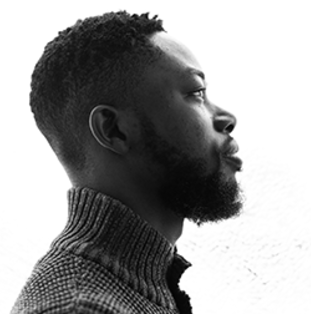[To read an introduction to this column, please see the first paragraph of the previous post here]
This week I would like to share a poem I found recently from the Nigerian poet Gbenga Adesina. The following poem I discovered in the Fall 2020 issue of Narrative magazine. It is titled “Across the Sea: A Sequence”:
Across the Sea: A Sequence
Gbenga Adesina
1.
Across the Sea
The bottom of the sea is cruel. — Hart Crane.
i
On the sea, your prayer is not to the whorl scarf
of waves. Your prayer is to the fitful sleep of the dead.
Look at them, their bodies curve darkly without intention
and arrow down into the water. What do you call a body
of water made of death and silence? The sea murmurs
on the pages of this book. There are bones buried in the water
under these lines. Do you hear them, do you smell them?
ii
In the panic of drowning, there are hands lifting babies
up in the air, out of the water, for breath. A chorus
of still pictures brought this news to me, to us. Because we do
not see the bodies sinking, because we do not see their mouths
already touching water, the hands lifting up the babies look almost
ordinary. Like the Greeks lifting their newborns unto the sky.
What is the failure of dead? That they sink?
Or that they sink with what is in their hands?
The children of God are upon frightened waters,
And God being hunger, God being the secret grief of salt
moves among his people and does not spare them.
The children of God are upon frightened waters.
iii
There is a child whose protest is of eyes.
She has crossed the water with her mother,
they are shivering, waiting for her father, two days now, they are
waiting,
shivering for a father the mother knows would never arrive.
The mother holds the child, she says to her, gently:
“It’s a brief death. Your father has gone on a brief death.
He’ll soon be back.”
v
A man is bent on his knees, wailing at the waters.
He slaps his hand on the wet sand and rough-cut stones
the way one might fight a brother.
He grabs the shirt of the sand as though they are in a tussle.
The stones here carry the island’s low cry inside them.
A landlocked grief. They say the man was a newlywed.
Now his vows are inside the water.
He claws at the sand. He wails: “Ocean,
you owe me a body. Ocean, give me back my lover.”
vi
Think of the boats. The timber comes from Egypt.
They are cut into diagonals and made pretty. They
are polished by hands. Their saplings are watered by the Nile.
The White Nile flows through Khartoum
before it puts its teeth into the Mediterranean.
The waters and the trees eat bodies.
The children of God are upon frightened waters,
And God being hunger, God being the secret grief of salt
moves among his people and does not spare them.
The children of God are upon frightened waters.
2.
Coma
The silence is a prairie country. The silence
is the silence of hospital sheets.
The silence is of IV tubes, veins, quiet siren of ghosts.
The silence is the silence of what
is dappled invisibly by a body
that is no longer human but not yet a ghost. The silence in your
body has lodged in my throat.
Silence, can you hear me? The silence is of lime,
and kraal stones. The silence is not shadow
but the light of a body buried under a mound of rough stones.
The silence is the silence
of hands. Hands, wire-vine hands, can you hear me?
The silence is the silence of broken ribs.
The silence is the silence of the head,
shorn and shaven. The silence is silence of a bandage wrapped
tight around what is sunken, what is fallen in the gait of the head.
Head,
can you hear me?
The silence is silence of blood,
seething through filament of bandage.
Blood, can you hear me?
Father, blood, Father can you hear me?
I have read this poem multiple times and every time I discover something new about it. Each section is a separate scene, but they are all connected by themes of water, death, and the struggle for connection and survival. The language, images, rhythm, line breaks, and everything is so striking to me, by the end I’m left speechless. What do you see in it? I would love to read your thoughts in the comments below!



Leave a Reply
1 Comment on "The Poetry Corner – 9 March 2021"
this poem hurts. so good, but it’s tough.